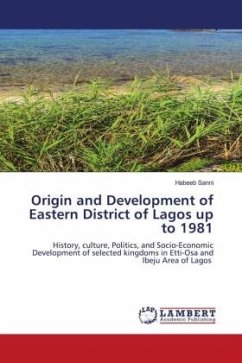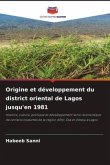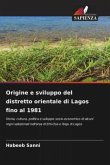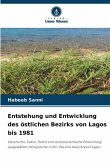This work examines the origin and development of selected communities in the Etti-Osa and Ibeju-Lekki Peninsula of modern Lagos State. It existed before the mid-19th when it became the cauldron of British-Lagos relations in the aftermath of the abdication of King Kosoko of Lagos following the British bombardment of Lagos in 1851. Several settlements were established before this period, making the Eastern District peopled mainly by the Ijebu and Awori sub-groups of the Yoruba. From the 1850s, it was brought into the limelight beyond Yorubaland following the movement of Kosoko into the area. During the era of Governor John Hawley Glover,(1862-1871) the followers of Kosoko gained recognition haven succeeded in suppressing some of the indigenous founders of the place. By the 1920s, the renaissance of the Ijebu subgroup began and was further accentuated by the granting of separate coconut plantations for the Ijebu and Awori groups further enhancing their economic activities. The decade 1960-71 witnessed the emergence of some locales that championed the development of social infrastructures that eventually led to its emergence as the most expensive location in modern Lagos State.
Bitte wählen Sie Ihr Anliegen aus.
Rechnungen
Retourenschein anfordern
Bestellstatus
Storno








